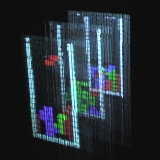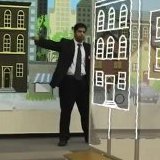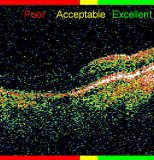Research
I am interested in using computer vision to solve real world problems, both for human assistive devices, as well as autonomous robotic applications.
 |
Multi-Layered Water drop display [10] With a single projector-camera system and a set of linear drop generator manifolds, we have created a multi-layered water drop display that can be used for text, videos, and interactive games. |
 |
This project involves creating an illusion of seeing moving objects through occluding surfaces in a video. We use a 2D projective invariant to capture information about occluded objects, allowing for a visually compelling rendering of hidden areas without the need for explicit correspondences. |
 |
Single-Layered Water drop display [09] In this work, we show a computer vision based approach to easily calibrate and learn the properties of a single-layer water drop display, using a few pieces of off-the-shelf hardware. |
 |
Local quality assessment for optical coherence tomography (OCT) [08] Optical Coherence Tomography (OCT) is a non-invasive tool for visualizing the retina. In this work, we present an automated method for local quality assessment. We extract features that are insensitive to pathology, and employ a hierarchy of support vector machines and histogram-based metrics. |
 |
Analysis of Rain and Snow in Frequency Space [07-08] Particulate weather, such as rain and snow, create complex flickering effects that are irritating to people and confusing to vision algorithms. We formulate a physical and statistical model of dynamic weather in frequency space. At a small scale, many things appear the same as rain and snow, but by treating them as global phenomena, we can easily remove them. |
 |
A Game Platform for Intelligent Agents [04-05] The Quagents system provides a flexible interface to the functionality of a game engine. The goal is to make interactive games a useful research and teaching vehicle for academics. Quagents is freely available, and runs under Unix/Linux, Windows, and Mac OS X. My main contribution was the development of a multi-agent collaboration platform, and a voting-based method for multi-agent collaboration. |
Contact
 Carnegie Mellon University
Carnegie Mellon University
Robotics Institute
5000 Forbes Avenue
Pittsburgh, PA 15213
My official RI webpage